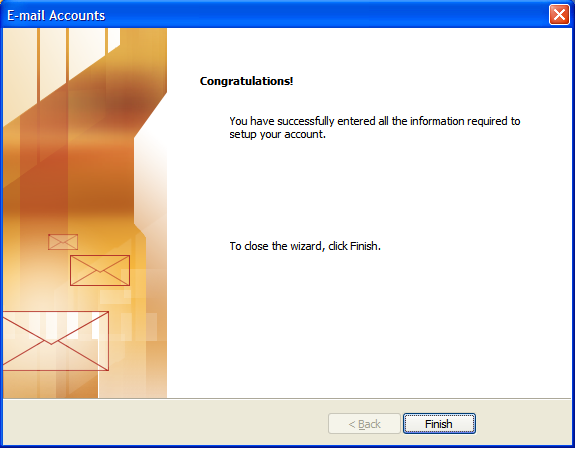How do I access my Web-Based Email account?
You can log on to your Web-Based Email account from your Web
browser by going to the Web address for your account. The Web address is the
same as your domain name, except you replace "www" with "email". For example, if
your Web address is "www.example.com", your email address is "email.example.com".
Setting Up Your E-mail in Microsoft Outlook
This tutorial shows you how to set up Microsoft Outlook to
work with your e-mail account. This tutorial focuses on setting up Microsoft
Outlook 2003, but these settings are similar in other versions of Microsoft
Outlook. You can set up previous versions of Microsoft Outlook by using the
settings in this tutorial.
To Set Up Your E-mail Account in Microsoft Outlook
- In Microsoft Outlook, select Tools > E-mail Accounts.
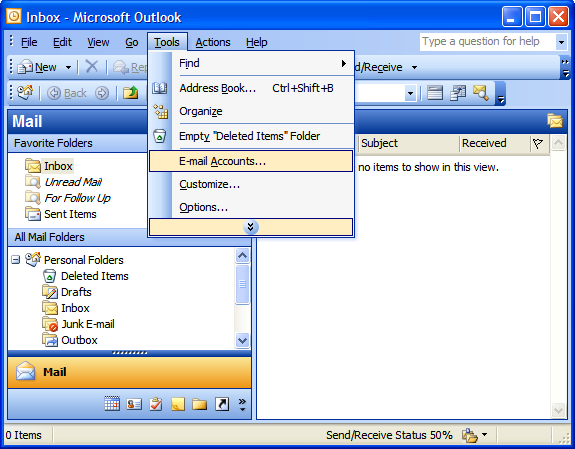
- On the E-mail Accounts wizard window, select "Add a new
e-mail account" and click Next.
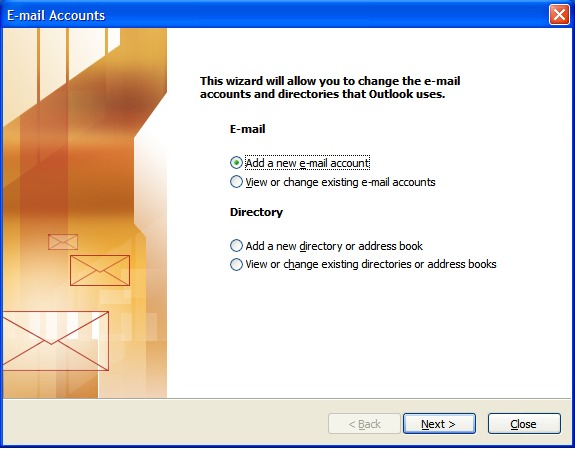
- For your server type, select "POP3" and click Next.
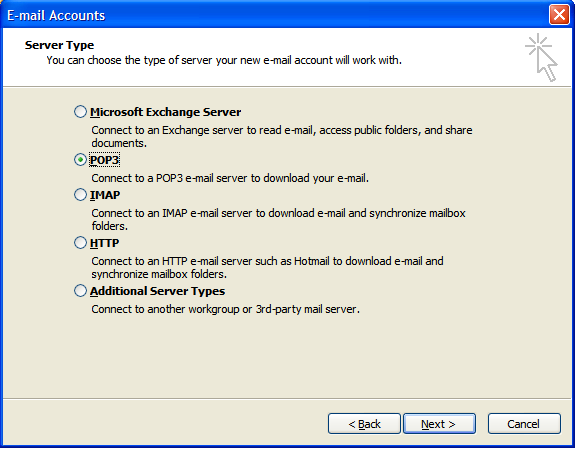
- On the Internet E-mail Settings (POP3) window, enter
your information as follows:
- Your Name
- Enter your first and last name.
- E-mail Address
- Enter your e-mail address.
- User Name
- Enter your e-mail address, again.
- Password
- Enter the password you set up for your e-mail
account.
- Incoming mail server (POP3)
- Your incoming server is mail.coolexample.com,
where "coolexample.com" is the name of your domain.
- Outgoing mail server (SMTP)
- Enter smtpout.secureserver.net for your outgoing mail
server.
Click "More Settings."
NOTE: "smtpout.secureserver.net"
is an SMTP relay server. In order to use this server to send e-mails, you must
first activate SMTP relay on your e-mail account. Log on to your Manage Email
Accounts page to set up SMTP relay. If you do not have SMTP relay set up and
your Internet Service Provider (ISP) allows it, you can use the outgoing mail
server for your Internet Service Provider. Contact your Internet Service
Provider to get this setting.
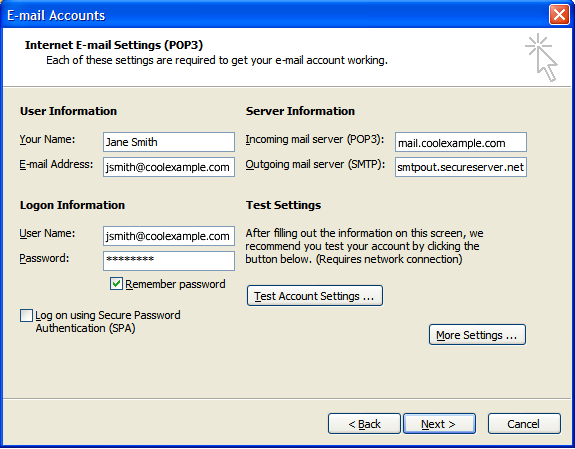
- On the Internet E-mail Settings window, select the
"Outgoing Server" tab.
- Select "My outgoing server (SMTP) requires
authentication."
- If you did not change the SMTP relay section, select
"Use same settings as my incoming mail server". If you changed the user name
and password in the SMTP relay section of your Manage Email Accounts page,
select "Log on using" and enter the user name and password. The following
example assumes you did not change your SMTP relay section in your Manage
Email Accounts page.
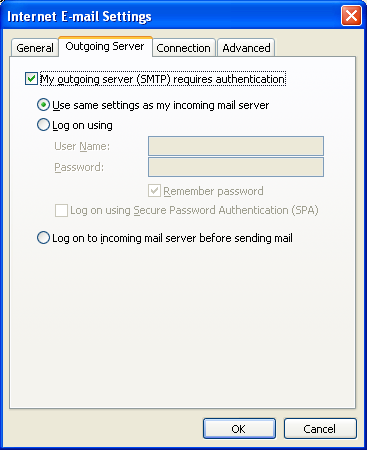
- Select the "Advanced" tab and change the "Outgoing
server (SMTP)" port to 80 or 3535.
- Click OK.
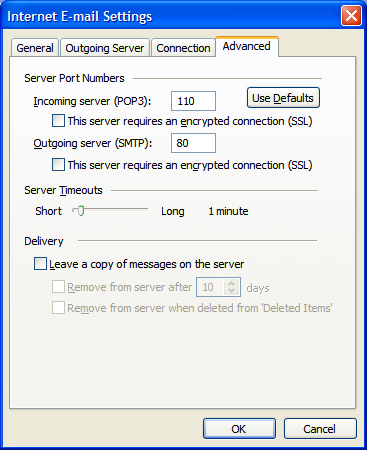
- Click Next.

- Click Finish.
